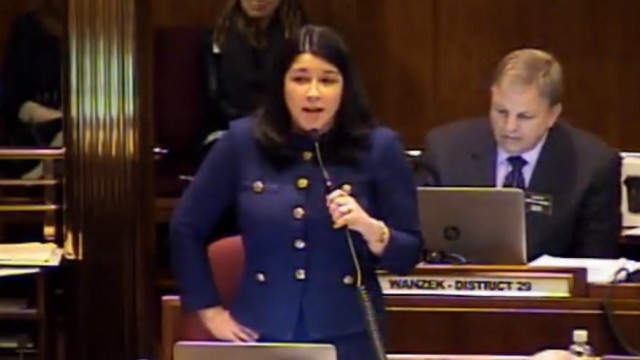Senate Kills Bill Which Would Have Given Representation to Citizens in Extra-Territorial Zoning Areas

Extra-territorial zoning has been a controversial area of policy in North Dakota for some time now. Essentially it’s state law which allows municipalities to regulate areas outside of their jurisdiction. Depending on the size of the community, they can implement zoning regulations up to four miles outside of their city limits.
The problem? The citizens who live in those areas don’t get to vote in their municipal elections, so they’re being regulated without any opportunity to get a say in who is doing the regulating.
Today the state Senate considered SB2086 introduced by state Senator Nicole Poolman of Bismarck. The bill, if passed, would have allowed for a non-voting member from the extra-territorial area to participate in city government and would have allowed people living in those areas to vote in city elections (the city commission would have assigned which ward or whatever those votes counted in).
The got killed on a 4-42 vote after getting a “do not pass” recommendation from the Political Subdivisions Committee. Here’s the rather short floor debate:
[fcc_jw_player key=”kyGn6hBD”]
Senator Randy Burckhard of Minot carried the bill to the floor. “It’s a bad bill,” he said.
“These citizens are claiming taxation without representation,” he explained, but pointed out that the citizens don’t pay city taxes, and described the situation of extraterritorial zoning as a “isolated incident.”
“It would appear these citizens want representation without taxation,” he continued, noting that (not surprisingly) the League of Citizens and the Association of Counties had lobbied against the bill.
But Senator Poolman said that after filing the legislation she heard from people in other parts of the state dealing with this issue which was originally brought to her by constituents who are being zoned by the City of Bismarck. “I can say it’s not an isolated incident,” she said.
As for taxation, she said people living in extra-territorial zoning areas do still pay some fees to the city.
Senator Judy Lee of Fargo also spoke against the bill, pointing out that citizens from extra-territorial zoning areas can show up and testify at city meetings and that current law does requirement their inclusion on planning a zoning boards. But that’s small comfort. The most powerful tool citizens have over government are their votes, and right now citizens in extra-territorial areas cannot vote for city governments which regulate them.
As Poolman pointed out this issue “doesn’t keep coming up again and again because it isn’t a problem.”
I’m not sure that SB2086 was the right solution to the extra-territorial zoning issue, but the Legislature shouldn’t be dismissive of the problem just because it impacts a relatively small number of people. In America we embrace the idea of the “consent of the governed,” but it’s difficult for those being governed by cities they don’t live in to give their consent when their participation in the process is marginal at best.




